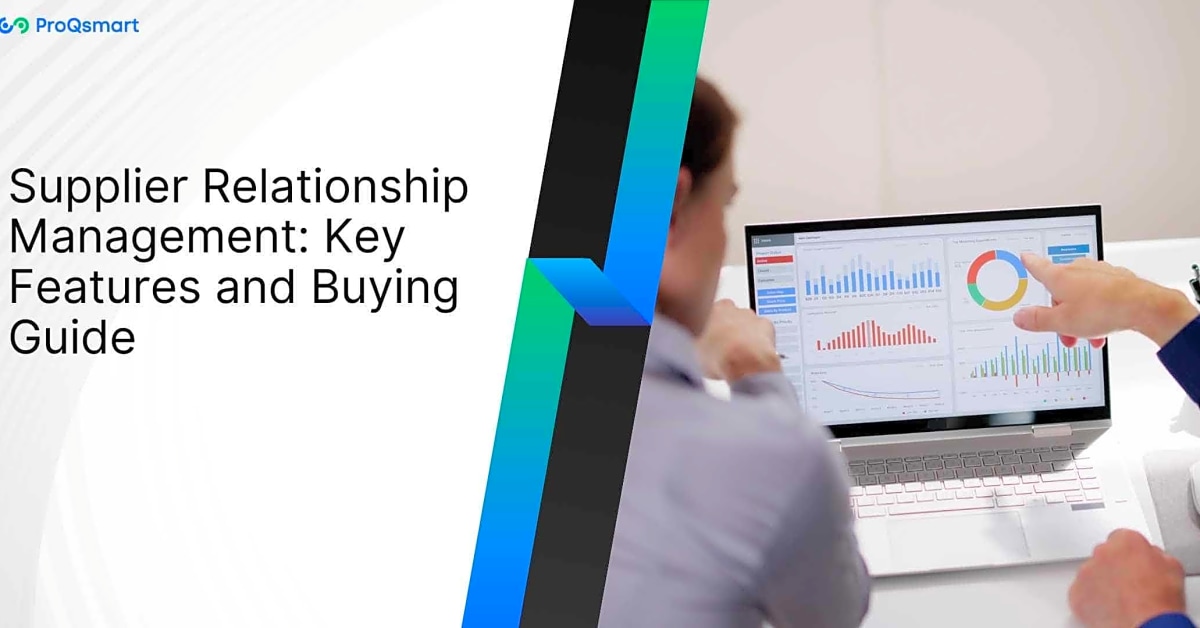How to Improve Your Business Strategy: A Guide to Supplier Relationship Management
 by Consultant
by Consultant

In today’s competitive business landscape, it’s more important than ever to have strong relationships with your suppliers. Supplier relationship management (SRM) is a crucial part of any successful business strategy, as it involves managing and optimizing the relationships with your suppliers to ensure the best quality and efficiency for your business. In this article, we will delve into the world of SRM and provide you with a comprehensive guide on how to improve your business strategy through effective supplier relationship management. Whether you’re a small business owner or a large corporation, this guide will offer valuable insights and tips on how to strengthen your supplier relationships and achieve greater success in your industry. So, let’s dive in and explore the power of strategic solutions and collaboration in supplier relationship management.
In today’s competitive business landscape, having a strong and effective strategy is crucial for success. This is where supplier relationship management (SRM) comes into play. By effectively managing relationships with your suppliers, you can improve your business strategy and gain a competitive edge. In this article, we will explore the ins and outs of SRM and how it can help you achieve your strategic goals.
To start, it is important to understand the main objectives of SRM. As a strategy consulting resource, it is crucial to outline the benefits and key components of effective SRM. SRM can improve your supply chain efficiency by ensuring timely delivery of high-quality products and services. This not only increases customer satisfaction but also reduces costs associated with delays and rework. Additionally, by collaborating closely with suppliers, companies can tap into their expertise and knowledge to drive innovation and continuous improvement.
One of the key factors in successful SRM is communication. Building open and transparent lines of communication with suppliers allows for better understanding of each other’s needs and expectations. This leads to more effective problem-solving and decision-making, ultimately benefiting the overall business strategy.
Trust is another crucial element in supplier relationship management. By establishing trust with your suppliers, you can foster a mutually beneficial relationship based on reliability and accountability. This can result in improved supplier performance and reduced risk in the supply chain.
To further illustrate the benefits of SRM, let’s look at some real-life examples. The retail giant Walmart has successfully implemented an SRM program, resulting in cost savings of over $2 billion through improved supplier negotiations and collaboration. Another example is automotive company Toyota, which has implemented SRM to improve its supply chain efficiency and increase innovation through closer partnerships with suppliers.
In conclusion, SRM plays a vital role in enhancing a company’s overall business strategy. By understanding its objectives and key components, companies can reap the benefits of improved supply chain efficiency, cost savings, innovation, and strong relationships with their suppliers. It is clear that SRM is a valuable tool for companies looking to stay competitive in today’s business landscape.
Implementing Effective Strategic Solutions
Another aspect that people may be interested in learning about is how to implement effective strategic solutions. This is where SRM can truly make a difference. By leveraging the expertise and resources of your suppliers, you can develop and implement innovative solutions that drive your business forward. You can use case studies or success stories to illustrate this point and show the impact of SRM on strategic implementation.
Developing an Organizational Strategy
One of the main reasons people search for information on strategy consulting is to develop their organizational strategy. In this section, we will discuss the importance of supplier relationship management (SRM) in this process.
By effectively managing relationships with your suppliers, you can align your organizational goals with your supply chain strategy. This involves understanding their capabilities and leveraging them to improve efficiency, mitigate risks, and gain a competitive edge.
The Importance of Strategic Analysis and Thinking
No strategy can be successful without proper analysis and critical thinking. As such, it is important to highlight how SRM can contribute to this process. By closely monitoring supplier performance, analyzing data, and identifying areas for improvement, you can make informed strategic decisions and continuously improve your overall strategy.
Leadership and Collaboration with Suppliers
Finally, it is crucial to touch upon the role of leadership in SRM. As a management consultant, it is important to emphasize the importance of strong leadership in building and maintaining relationships with suppliers. Effective leadership can set the tone for the entire SRM process, ensuring that all parties involved are aligned and working towards the same strategic goals.
In addition to leadership, collaboration with suppliers is another key aspect of successful SRM. By fostering a collaborative partnership with your suppliers, you can reap numerous benefits such as increased innovation, cost savings, and improved supplier performance. This can be achieved through open communication, sharing of ideas and resources, and working together towards mutual success.
In conclusion, supplier relationship management is an integral part of developing and implementing an effective business strategy. By focusing on building strong relationships with your suppliers, you can improve your supply chain efficiency, drive innovation, and achieve your strategic goals. With proper communication, trust, and collaboration, SRM can truly make a difference in your business.
Related Posts
Learn about strategic planning, analysis, and leadership through effective supplier relationship management.
Business Consulting Articles
- About cookies and cookie consent
- Advisory Consulting
- Business Growth Consulting | Unlocking Your Business Potential
- Business Process Consulting Services Can Improve Your Business
- Organizational Development Consultant
- Privacy Policy
- Strategic Advisory Services Explained: A Comprehensive Guide
- Top 100 Advisory Consulting Terminology
- Top 100 AI as a Service (AIaaS) Terminology
- Top 100 Business Consulting Terminology
- Top 100 Executive Coaching Terminology
- Top 100 Operation Management Terminology
- Top Advisory Consulting Terminology
- Top AI as a Service (AIaaS) Terminology
- Top Business Consulting Terminology
- Top Executive Coaching Terminology
- Top Operation Management Terminology
- AI Generated Q&As
- Benefits of advisory consulting
- Blog
- Boutique Firms
- Budgeting
- Business advisory consulting
- Business Consulting
- Business consulting services
- Business Management
- Business planning
- Case studies on specific industries
- CEO
- CFO
- Change management
- CIO
- Client success stories
- CMO
- Collaboration and partnerships
- Consulting
- COO
- Creative thinking
- Critical thinking skills
- Culture and values
- Executive Coaching
- Expert guidance and insights
- Financial advisory consulting
- Financial analysis
- Financial consulting
- Financial Consulting
- Financial consulting services
- Financial strategies
- Fractional Executive
- Goal setting
- Human Resource Management
- Increased efficiency and profitability
- Industry knowledge and experience
- Insight
- Investing
- IT Consulting
- Leadership and management
- Leadership styles
- Management Consulting
- Management Consulting
- Market analysis
- Market analysis
- Marketing consulting
- Marketing strategies
- Marketing strategies
- Methodologies
- Operational strategies
- Organizational structure
- Process improvement
- Professional qualifications and certifications
- Retirement planning
- Risk analysis
- Risk management and compliance
- Sales techniques
- Scaling and expansion
- Strategic consulting
- Strategic foresight
- Team diversity and collaboration
- Technology advisory consulting
- Technology consulting services
- Technology solutions
- Testimonials from satisfied clients
- Tier 1 Firms
- Tier 2 Firms
- Vision and direction
- What is Advisory?
- What is Consulting?
